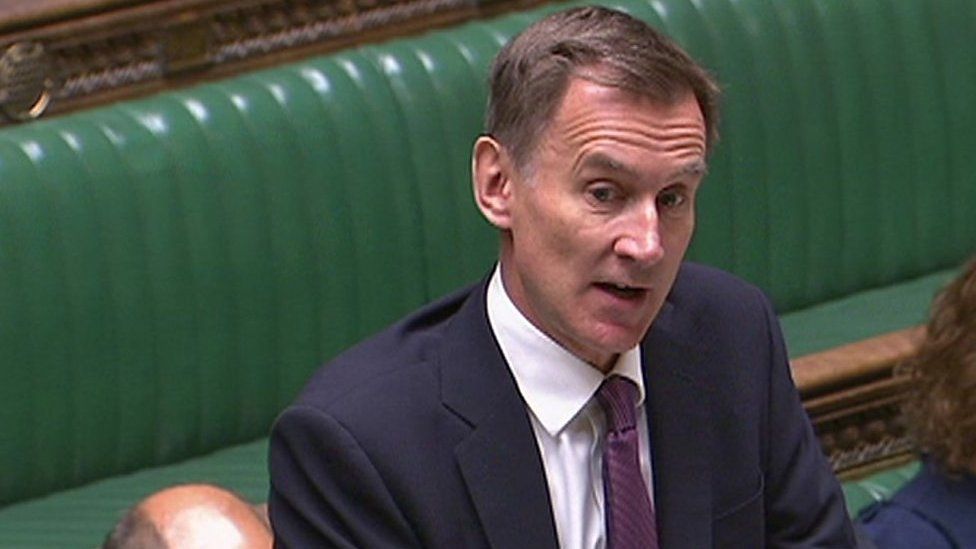ARTICLE AD BOX
 Image source, House of Commons
Image source, House of Commons
Political editor, BBC News
The chancellor is exploring the option of scrapping the tax status enjoyed by people who live in the UK, but whose home for tax purposes is overseas.
Non-domiciled people, often referred to as non-doms, only pay UK tax on money earned in the UK.
They do not have to pay any tax to the UK on money made elsewhere.
Perhaps the UK's most famous non-dom is Rishi Sunak's' wife, Akshata Murty - but two years ago, she committed to paying UK tax on her overseas income.
Conservatives, including the Chancellor Jeremy Hunt, have long defended the non-dom arrangements, saying they helped ensure the UK was an attractive place for highly sought after, well-off people to choose to live and work.
Mr Hunt remains committed to ensuring his policies don't undermine this.
But, ahead of the Budget next week, Treasury officials are exploring a range of options to either generate more money in tax or reduce spending - in order to be able to afford tax cuts for millions of people.
Scrapping the non-dom regime could generate £3.6bn for the government, according to research by Warwick University and the London School of Economics. The most up-to-date statistics from HM Revenue and Customs show there were 68,800 non-doms in the UK for the tax year ending 2022.
Recent figures produced by the Office for Budget Responsibility (OBR) have revised down the scope for mass market tax cuts, unless extra money is found.
For months both the chancellor and the prime minister have been strongly hinting they want to deliver tax cuts.
So, among the options to address this conundrum are:
- Cutting the spending assumptions in government departments over the next five years
- Scrapping non-dom tax status
The chancellor is still due to be presented with more data by the OBR in the next few days and he has not yet committed to anything on non-doms.
But neither has he ruled it out.
Politically it is fascinating: it shows what a bind he is in, considering an idea he has long rejected.
Labour has said it would spend the money generated from scrapping non-dom status on schools and the NHS.
But if the government used it to fund tax cuts this would pose a dilemma for the party if it wins power in this year's general election.
If Labour backs any tax cuts the chancellor announced, which they are expected to do, this would leave questions over how some of their spending pledges would be funded.
Labour's shadow chancellor Rachel Reeves has claimed whichever party wins the next election will inherit "the worst set of economic circumstances since the Second World War".
She said that after former Chancellor George Osborne's promise to "fix the roof" while the sun was shining, "the Conservatives have broken the windows, kicked the door in and now they're burning the house down".
This is a reference to the expectation that in next week's Budget the chancellor will use up almost all the room for manoeuvre within his self-imposed borrowing rules.
Labour has said it will stick to the key rule that the national debt should in five year's time fall as a share of the national economy.
The government might choose to use up most of what is known as "fiscal headroom", and then suggest Labour would have to raise taxes.
Conservative plans for tax cuts are predicated on a pencilled-in total for public spending after the election, rather than detailed spending plans.
Ms Reeves is expected to wait until after the Budget, and the new set of economic forecasts from the Office for Budget Responsibility, before new detail about Labour's economic approach is revealed.

 10 months ago
84
10 months ago
84








 English (US) ·
English (US) ·